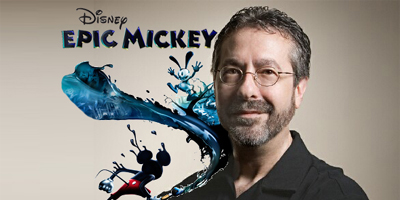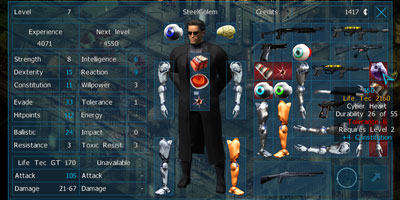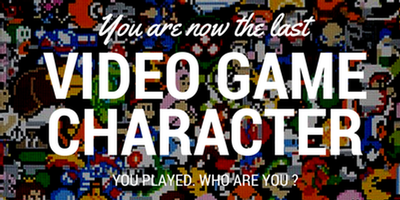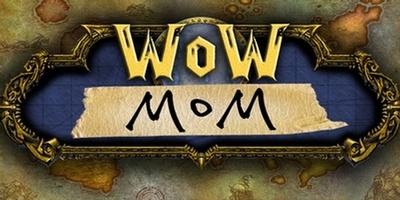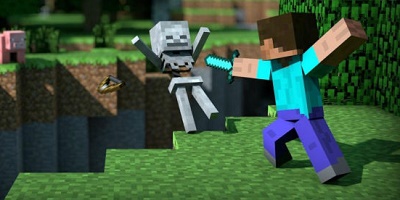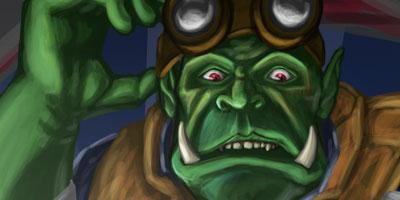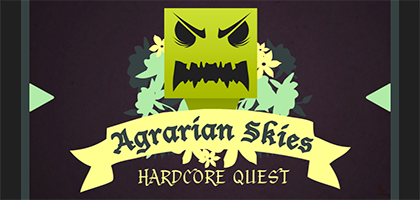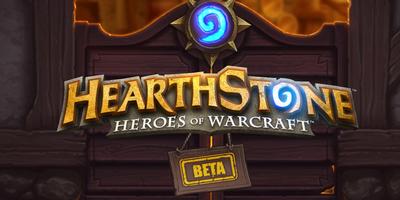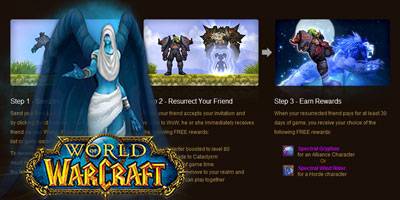- by Arthur "Arturis" Orneck
- Posted on February 3, 2012 @ 4:00 PST
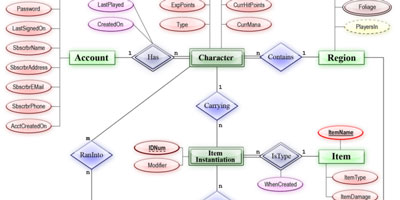
(The following article was originally posted on MMOSite's Quest! Gaming Blog on April 20th, 2010. I have decided that I want to continue writing this column, so I am carrying over the original posts in-tact, bad spelling/grammar/assumptions and all, so that I can show where my thoughts are coming from prior to getting to where they are now - Arturis)
Game Theory: MMORPG Core Concepts
Greetings all, and welcome to Game Theory, a little slice of MMOsite's Quest! that I call my own. I am your honored and humble host, Arthur E. "Arturis" Orneck.
It is in this column that I plan on taking the time to wax poetic on the inside mechanics and behind-the-curtain philosophies of RPGs and the game industry at large. As an aspiring Game Designer, I find that just playing a game is no longer as satisfying to me as understanding how and why the game acts as it does. Why does a longsword do more damage then a scimitar? Why cant my hunter tame a Zebra as a pet? Would a spell called "Acid Fist" do Nature damage, Crushing damage, or both? These are the kind of things I like to ponder, and I will do so (at great length) here for all to see and reply to.
As a fore warning, though, some aspects of what I discuss in this and future columns might be too technical for some readers, while other topics or opinions my be too general (some would say "ignorant") for others. Reader's discretion is advised.
In this inaugural post, I wanted to take a moment to make sure we are all on the same page as to what an MMORPG is and where it comes from. Let us forge ahead!
The big question: What is an MMORPG?
At its most blunt, an MMORPG is exactly that, a Massively Multiplayer Role Playing Game, or an RPG game that many people can play at once. But just stating what the acronym means completely misses the point of what one is.
When you boil it down to its bare, base components, an MMORPG is essentially a graphical interface to a database. You just acquired the [Omega Sword of Awesome]? Add an Item ID to the database table that represents your inventory. You defeated the oppressive Devil Dragon and gained a level? Your character's entry in the database gets its experience and statistical columns adjusted accordingly. The character that you invest so much of your time, energy, and money into is nothing but an assembled collection of data and statistics sitting on a remote server somewhere.
Looking from that view, MMORPGs don't really sound like much fun, do they? Of course not. Much like when a stage magician reveals his secrets, the illusion is broken and the magic is revealed as nothing more than slight of hand. Why, then, is this industry growing at an exponential rate? Why are there hundreds if not thousands of MMOs out there, from free-to-play to pay-to-play and everything in between, with more being announced each day? The answer lies in the illusion itself, and more specifically, in two key factors: Presentation and it's oft neglected child, Usability.
Presentation covers all the aspects that we think of as "the game"; The graphics, animations, sound effects, and the majority of the game mechanics that are readily apparent to us all count as Presentation. EverQuest 2's presentation lacked refinement - the characters animated very stiffly, and the special effects were so over the top as to have lightning arching and crackling with even the most basic of sword attacks. Often, however, it is the subtle changes in presentation that have the biggest impact. When Blizzard decided to change the mana regeneration display in World of Warcraft from the original way of the mana bar jumping up every few seconds (referred to as a "tick") to the new method of showing the mana bar gradually fill in real time, the effect on the actual game play was infinitesimal, however players received it as a major change, because it was a vast improvement in the overall presentation of the game.
Usability involves the aspects of Presentation that aren't as readily apparent, but still effect the game play tremendously, as it is the measure of how easy it is to interact with the game. Simple features, like being able to right-click on an object to attach it to an in-game mail instead of having to drag it over, are great leaps in usability. The ultimate goal of usability is to make the player forget that they are interacting through a device, and allow them to interact and react to the game as if they were really living inside a virtual world. In fact, presentation and usability work hand in hand to bring about the ultimate state that gaming strives for, particularly games of the RPG genre: Immersion.
Immersion is what keeps you playing, long hours into the night when you know you have work or school in the morning. The more immersed in the game world you are, the more likely that you will keep coming back, to continue to be a living, breathing, and spending members of the virtual world's community. It is immersion that pays for servers, the network connections, the programmers and artists and VPs and CEOs and everyone that had a hand in making your game possible. Without immersion, people would quickly lose interest in the game, and see it for what it really is underneath: The shuffling of data from here to there and back again.
There is also a dark side to immersion, one which I will only touch upon here, and that is referred to as addiction. For some players, the pull of immersion can be too strong to deny, and it ends up overtaking the importance of their real life needs. That, however, is a topic for another time.
The MMORPG Legacy (In Two Paragraphs)
Back before there were MMOs, before the World Wide Web was even known world wide, the Internet was mainly traversed using a more archaic terminal-based system called Telnet. It was during the halcyon days of Telnet that we saw the rise of the first Multi-User Dungeons, or MUDs, as a way for many players to adventure in a shared virtual world. The interface for MUDs was entirely text, with written out room descriptions listing what objects or people were in the same room as you, as well as what directions you could take to leave the current room and enter another one. Interaction was also textual, and involved typing in commands such as "kill goblin" and "loot corpse" in order to get anything done.
As the years went on, more and more experiments with graphical interfaces to these virtual worlds started to pop up. Meridian 59 was one of the forerunners, though it was barely more than a graphical interface to a chat room. America On-Line invested in SSI's multiplayer adaptation of its hit Gold Box and Silver Box Strategy RPG games, Neverwinter Nights, was met with good reception, though it was still very quarky to interact with. An online adaptation of Richard "Lord British" Garriott's Ultima series further improved upon the concept of a "living" virtual, graphical society by including systems to simulate economy and ecosystems.The game that made the largest breakthrough into graphical and persistent virtual multiplayer worlds, however, is still considered the grandfather of the MMO genre: EverQuest. In fact, the majority of game play mechanics that exist in modern MMOs are attributed to EverQuest and its design. While countless MMOs have come along and improved on EQ's basic design (including Dark Age of Camelot and Asheron's Call), arguably the best and most successful EverQuest clone to this day is World of Warcraft.
Why are you telling me all this?
Simply put, it is important to know where the ideas come from before you try to reinvent them. Reinventing in a vacuum of ignorance only leads to recreating what others have already done in the past, and that gets us no where. I feel it is our duty, as gamers, to know our gaming heritage, so that we can appreciate our gaming future.
And on that note, I shall draw this first post to a close and bid you farewell. Please be sure to bring your thinking caps to the next Game Theory post, as we dive into our first hypothetical feature set! Good times!
Until next time, good adventuring!
Oops, forgot to put images in. I'll make up for it next week. ^_^
I can't wait to read the new parts in this series, but it's also great to see them on GGX where they can be appreciated!


